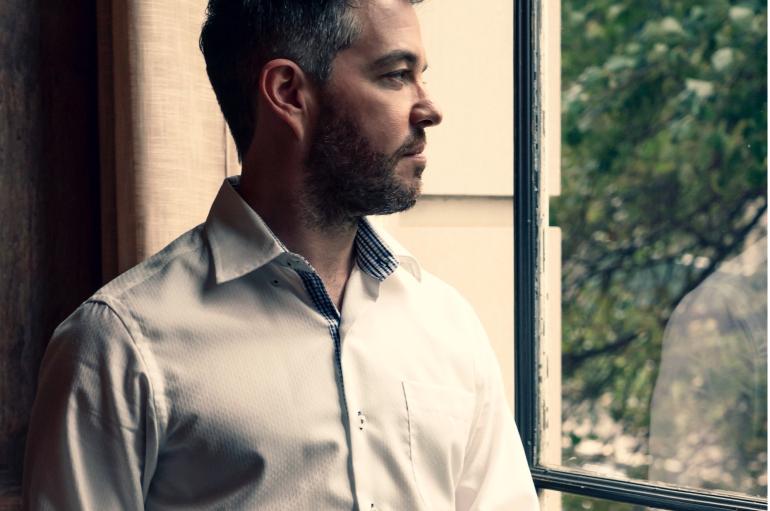
Sean Shepherd, Visiting Assistant Professor in Composition, has been hailed as "an exciting composer of the new American generation" (New York Times), and a “vital taste of the future” (Boston Globe). Shepherd has earned wide acclaim and commissions from major ensembles and performers across the US and Europe, and most recently received the 2024 Charles Ives Living Award. In 2022, the Grammy-award winning Pacifica Quartet premiered Shepherd's third string quartet, and this week they are diving deep into the work on UChicago's campus in a series of events for their autumn residency as the 2023-24 Don Michael Randel Ensemble-in-Residence.
Shepherd's String Quartet No. 3 will be featured in a lecture demonstration at the International House on Thursday, October 19th at 5:30 p.m., as well as on Pacifica Quartet's performance with UChicago Presents on Friday, October 20th at 7:30 p.m. in Mandel Hall.
In advance of these exciting events, we sat down with Shepherd to discuss his latest string quartet. Read on to learn about Shepherd's compositional approach, "B" composers, what it's like working with Pacifica Quartet, and more!
How did your experience composing your first two quartets inform your compositional approach to your third one?
It's a much MUCH more concise statement. I have struggled mightily with this genre, and my first two forays are excursions in frustration -- I feel like those two pieces don't address the basic needs of this ensemble. I really decided to start from scratch. The piece is only about 11 minutes long (half as long #2, and a third as long as #1), and worked the material over a great deal before deciding what to do with it.
Describe String Quartet No. 3 using only three words.
Mercurial. Dark. Brief!
You've previously said that the second movement of your work, titled “Before and after the Two Bs,” refers to Bartók and Boulez, in a sort of tongue-in-cheek spin on the traditional “Three Bs:” Bach, Beethoven, and Brahms. In what ways do the influences of Bartók and Boulez show up in your quartet, and are there any other “B” composers you considered referencing?
It was only after I had written the second movement that I realized, well: what did I make here. To me, the six Bartók Quartets are a magnificent pinnacle of the art form (by which I mean music, no matter who it's written for!), and I have finally accepted that running away from an influence that overwhelming is futile. There is enormous tempo flexibility (the more the merrier, as I tell the quartet in rehearsals) and it reminded me of some of the recordings that he collected in rural Hungary of those, often elderly, who sang from memory the music they knew. The Boulez reference occured when I took a look at the "melody" -- actually a meta-melody with narrow intervals in tight canon shared between the two violins at the beginning of the movement -- it felt like the blur effect he gets in his Fourth Notation for Orchestra. I should definitely consider Berlioz as a B to emulate in my next quartet!
When you heard Pacifica Quartet perform your work for the first time, were there any moments that surprised you or uncovered a new layer of the piece?
There are a lot of sustained sounds in the first and third movements, and my intention was to have these elements in the background, so as I wrote, I was more concerned with whatever was happening "up front." Once I heard it with all layers and sustain, lots of color and harmony was just present. Some of the music has a kind of goopy, molasses-y quality that the quartet delivers effortlessly and beautifully. It was a very nice surprise.
What has been your most memorable moment so far from working with Pacifica Quartet?
My daughter Freya was about 3 weeks old when they premiered the piece in Utah last fall. So I missed the premiere and joined for another performance, which was my first time working with them on the piece. What I noted (and mentioned) was that I had never needed to be there. They really had been doing what I hoped was clear on the page. Like in any piece of music, there is plenty of room for interpretation, but they and I were absolutely in musical sync.
When you’re not actively composing, what do you like to do in your free time to stay inspired?
I find that with kids and other daily attention needs, it's actually healthy for me personally to let the creative field go fallow when I'm in between pieces. Some composers can glide from one piece to the next. While I can do it, and often must, I find a little distraction to be very useful. We spent a lot of time outside this summer -- no better way to spend time with one's kids.
